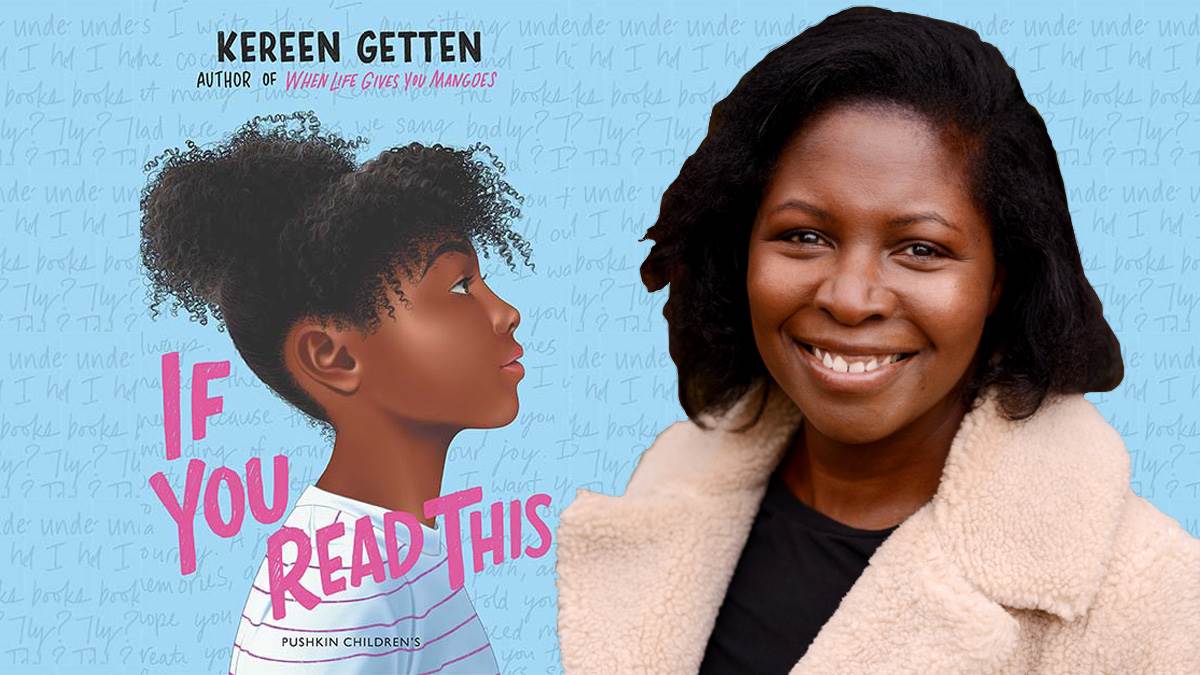Reading with children about dementia
Published on: 08 September 2022
It’s difficult to explain to children why Grandma or Papa might get confused sometimes. Reading books about grandparents with dementia can prompt discussion, and it helps children feel that someone else understands their emotions. Kereen Getten, author of If You Read This, about a girl and her grandfather, explains why reflecting the reality for some families is important.

My grandfather was a fisherman in Jamaica. He woke at the crack of dawn every morning, walked a mile to the sea and took his small wooden boat out to catch fish. He was well-known in his community and well-liked. It was his popularity that saved him when he first got dementia, at least, when it was first noticeable.
We will never know how long he struggled with it before someone noticed. But one day, out of the blue, my mother received a call thousands of miles away, from her brother.
“Someone saw Papa in the city,” he said. “They said he didn’t look well.”
When Papa was found, he was lost and confused. He didn’t know who he was, didn’t recognise my uncle, and he had forgotten where he lived.
My grandfather and grandmother had parted ways many years before this, before I was even born. He had moved away and created a new family.
When my mother was younger, she would bump into him occasionally. When she left Jamaica, she would look for him when she was in the country, but that was about all their interaction until that phone call.
As his granddaughter, I had even less contact. All I had were stories from my mother. Stories of how he was the pied piper of their town. How he made wooden carts for the kids to roll down the hill. How he took local children to the beach every Sunday, cooking food while they swam. How he made ice cream from scratch for everyone on their hill.
I met him a few times when I was younger, but those memories are faint, almost dreamlike, as though they never happened.
When we heard he was roaming the streets, my mother found him a nursing home where he would be safe and looked after. We visited him every time we were on the island. It was the most I had seen or interacted with him, and he didn’t even know who I was.
There were days, late afternoons, when the sun was cooling down, we would find him sitting outside the nursing home, under a tree with his newfound friends – other men and women who could no longer live independently. My mother would ask, “Do you remember me?” and my grandfather would reply, “Yes, man, mi remember you.” But it was obvious from the glassy look in his eyes, he did not.
We often sat beside him on large stones and listened as he told us stories of his life, as though time had not passed, and he was still a fisherman.
“You should have told me you were coming,” he would say. “I would have saved you some fish when I went fishing today.” But we knew he had not fished in years.
The nurses at the home told my mother he often disappeared. More than once they spent hours looking for him, and when they finally found him, he told them he was going fishing.
Sometimes, Papa told me stories about my mother, even though she was right next to him listening. He talked about her as though she was still young, still a teenager, and I loved those stories because I had never heard them before. We never had that time together until then.
It was this short but fascinating relationship with my grandfather that inspired the character Brim in my book If You Read This.
Brim is Brie’s grandfather. He has a remarkable home by the sea where she and her mother often visit. In the book, Brie loses her mother and I wanted to create a world for her that was almost magical. A world that she could escape to from her pain. I felt Brie needed someone special, someone who was also lost in another world, in a different lifetime. So, I introduced Brim, her grandfather. Someone who had always created a safe place for her. Someone who could help her find her joy again and without realising it Brie could also help Brim find his.
Dementia and death are such heavy subjects to deal with in children’s books. You feel a real responsibility to treat them with the upmost care and it is never something I take lightly.
But I am a big believer in being honest with children. In conversation, and in storytelling of any form. I believe in talking about every experience. Even the painful ones, while also giving the reader hope that things will get better.
Though I did not know my grandfather for very long, what I learnt from him was that we never forget the best times. Those are the memories that stay with us.
Maybe what I loved so much about the short time with my grandfather was how fiercely he held on to those memories. How hard he fought to keep them alive.
Maybe what those with dementia teach us in their most fragile moments is that we should cherish every moment too, while we still have them.
You might also like
Topics: Grandparents, Illness, Mental health, Features

